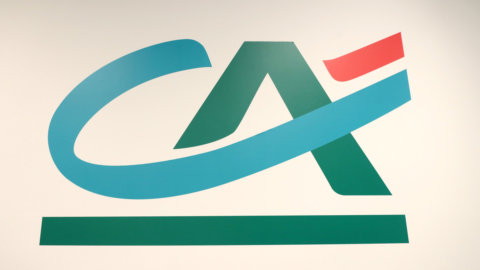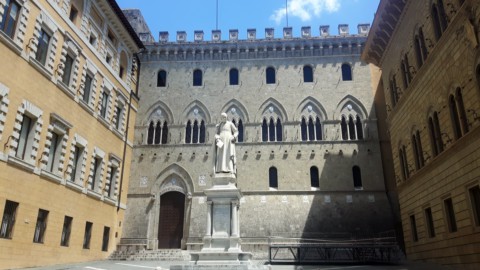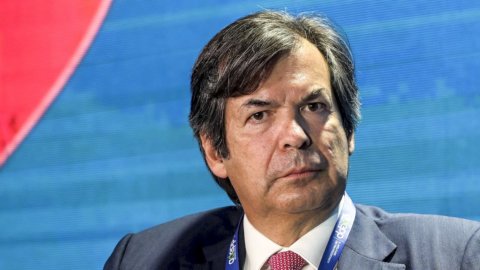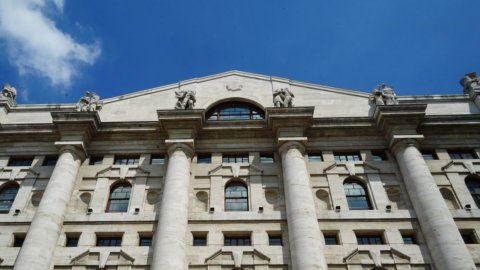Thanks to Amazon's accounts, +17% after the stock exchange, US price lists reduce damage by a dramatic week in which Meta (formerly Facebook) achieved the least liked record: 230 billion losses in one sitting. But the Nasdaq downturn is only one element of a rapidly changing film. Even the ECB, albeit reluctantly, leaned towards a more hawkish look on Thursday, in line with the Fed and the Bank of England: for the first time, Christine Lagarde did not deny a possible rate hike in 2022. The markets are taking act: a year ago the road was downhill, today it appears full of potholes and pitfalls to be avoided. It's better to focus on profitability, the weapon that has always been preferred by Carlo Messina, who this morning will illustrate Banca Intesa's plans.
- Meanwhile, Asia focuses on Beijing Olympic Games. The stock exchanges in Shanghai and Shenzen are still closed, but Hong Kong has reopened after the long stop for the Lunar New Year holidays. The Hang Seng Index is up nearly 3%. Seoul's Kospi gained 1,4%, Tokyo's Nikkei 0,5%, Sydney's S&P ASX200 0,6%. The end of the anti-pandemic restrictions on Oceania promotes good humor.
- Terrible sitting for the Nasdaq which marked a drop of 3,7%, the worst session since September 2020. Dow Jones -.46% and S&P -2,44% also hurt.
- This morning, however, the future on the technological stock recovered 2%.
- The change of course is due to Amazon which from -6,7% before the accounts, exploded to + 17% after the Stock Exchange, dragging upwards other digital champions, such as Snap and Pinterest.
- Thanks to cloud activities and the maxi capital gain generated by the investment in Rivian, not so much for the e-commerce part, Jeff Bezos' company closed the fourth quarter of 2021 with a profit that almost doubled to 14,32 billion dollars and with revenues of 137,41 billion dollars (+9%), essentially in line with analyst forecasts.
- Even more extreme is the down and up Snaps: the stock went from -23% at the close to +50% at the after hour.
- Even more sensitive change of course on bond markets of the entire planet. On Friday morning, Japan's 2016-year yield was at its highest level since 0,17, +1,85%. The 1,63-year Treasury Note trades at XNUMX%. The BTP restarts from XNUMX%, on the levels of a year and a half ago.
- The index of dollar it is down for the fifth day in a row to 95,2. At these prices, the weekly balance is -2,2%. Euro dollar appreciates to 1,146.
- Petroleum Brent and WTI on the highs of the last seven years above 90 dollars a barrel, +0,8%. Also due to the low temperatures in many parts of North America, another positive week should arrive for crude oil.
Even the ECB is open to raising rates
As expected, the ECB has decided to leave interest rates unchanged. The main rate remains at zero, that on deposits at -0,50% and that on marginal loans at 0,25%. The pandemic program (Pepp) will end in March and until then will continue at a slower pace, to then be replaced by "traditional" purchases (not related to the pandemic) increased by 40 billion in the second, 30 in the third and 20 in the fourth quarter. Christine Lagarde spoke of upside risks to inflation, calling it "much closer to the target" and, above all, has never explicitly denied the possibility of an increase in 2022. A change in monetary policy, according to Bloomberg, will be announced in March. One wonders if the market will try to force the hand of the central bank. It is therefore reasonable to expect an increase in volatility and a demand for higher yields.
London is up a quarter of a point
The example from across the Channel goes in this direction. The Bank of England raised its key rates from 0,25% to 0,50% (but 4 out of 9 directors voted for a half point increase). The institute announced that it will immediately begin with a stop to reinvestments, setting the goal for 2023 to wipe out the 20 billion pound corporate bond portfolio. The Bank of England expects annual inflation to accelerate above +7% within months due to low unemployment, rising wages and rising energy prices.
Sterling at the top. Gilts are a bargain
The Pound reacted by reaching the highest since February 2020 against the Euro (cross at 0,8275), while the yields on 10-year Gilts (government bonds) rose to 1,35%, the top since January 2019, against 0,70% a couple of months ago. Thus competition with the rates offered by the Eurozone increases: the yield on government bonds made in the UK over 2 years has jumped to 1,11%, the highest since 2011, and compares, for example, with the much less attractive -0,47 % of the 2-year German Bund and -0,02% of the 2-year BTP.
The spread jumps to 148, ten-year to 1,645%
After the Frankfurt meeting, however, yields also started to rise in the Eurozone. The 1,645-year BTP closed at 1,45% (from 148% at the opening). The spread closes at 138 points (from XNUMX).
The yield of the 30-year BTP closed at 2,249% from 2,109% in the previous final.
Milan in the red, the PMI Composite index slows down
The collapse of Meta on Wall Street, the change of tone by the ECB and the Ukrainian crisis sent the European stock exchanges into the red:
Milan leaves 1,09% on the ground but remains above 27 thousand (27.088 points).
The Omicron variant has imposed a heavy duty on the services sector of southern Europe: Italy and Spain, respectively, minimums in 11 and 12 months for the PMI Composite.
The Bear slows down Shell and Pubblici
The worst place is Amsterdam -2,19%, as usual the most sensitive to the trend of technology stocks.
The losses of the other markets were consistent: Frankfurt -1,63%, Paris -1,54%. Better Madrid -0,22%, the most bank-centric list.
London -0,61%. Since the beginning of the year, the City price list +3,1% is the best in the Old Continent.
Shell's gain was reduced by +0,39% in the final, which increased its dividend and buyback in the wake of quarterly earnings which reached their eight-year highs.
Publicis also slowed down +0,52% from +3%n at the start: the third-largest advertising agency in the world expects organic growth of between 4 and 5% after exceeding pre-pandemic levels in 2021.
Banks on the rise, waiting for the Intesa show
The signals coming from Frankfurt comfort the banks favored by the upward pressure on interest rates. Unicredit +2,3% has one more reason to celebrate: the stock touched 15 euros for the first time since August 2018 also due to the confirmation by the ECB of the Pillar 2 capital requirement at 175 basis points. The institution will have to meet a minimum level of 9,03% on Cet1, lower than current levels.
Intesa Sanpaolo is also up on the eve of the presentation of the accounts and the new business plan: the stock is at the appointment at its all-time high.
Enel revenues boom: +22,3 billion
Enel -1,02%. With the Stock Exchange closed, the accounts of the group were released which closed the 2021 financial year with revenues of 88,3 billion euros, in increase of 22,3 billion (+33,8%) compared to 2020. The change, according to the company's note, is due to the increase in the demand for electricity.
Saipem still down. Maire: We don't care
After a flat first part of the session, the fall of Saipem resumed -6,7% awaiting some reaction from the shareholders. Maire also plummets -5% despite repeated denials of interest in the company controlled by Eni and Cdp.
Amplifon, Stm and Interpump: black day
Amplifon, Stm and Interpump are also in deep red, with reductions of more than 4%.
Off the main list, Orsero's march continues +6,5%, rewarded by the buy of Akros (target price at 18 euros from 16).





